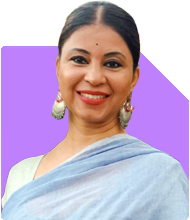Ramalingam Kalirajan |6300 Answers |Ask -Follow
Mutual Funds, Financial Planning Expert - Answered on Jun 03, 2024
He has an MBA in finance from the University of Madras and is a certified financial planner.
He is the director and chief financial planner at Holistic Investment, a Chennai-based firm that offers financial planning and wealth management advice.... more

Hi, I am 44 and have real estate of 15 cr (rental of 3.5 lac/mo), fd of 4 cr, mf of 50 lacs, ppf and epf of 70 lacs. I have a daughter who plans to study abroad. My monthly expenses are 5 lacs and i wish to retire at 50. My current mobthly take home is 7 lacs other than rental income. Pls advice how can i optimise for a happy retirement?
Real Estate Assets
Your real estate portfolio, valued at Rs 15 crore, provides a rental income of Rs 3.5 lakh per month. This is a substantial asset that offers a steady income stream. However, real estate can be illiquid, and its value can fluctuate.
Fixed Deposits
You have Rs 4 crore in fixed deposits. FDs are safe but offer moderate returns. With inflation, the real value of FDs may decrease over time. Diversifying some of this into higher-yield investments can improve returns.
Mutual Funds
You have invested Rs 50 lakh in mutual funds. Mutual funds can offer good returns and help beat inflation. Actively managed funds can provide better growth potential than index funds, which often just match market returns.
Provident Funds
Your combined PPF and EPF investments amount to Rs 70 lakh. These are great for tax savings and long-term growth. The government guarantee ensures safety, but the returns may not be very high compared to equity investments.
Current Income and Expenses
Your monthly take-home income is Rs 7 lakh, excluding rental income. Monthly expenses are Rs 5 lakh, leaving a surplus of Rs 2 lakh. This surplus can be invested for your retirement and your daughter's education abroad.
Retirement Planning
You plan to retire at 50, which is six years away. Post-retirement, you need a strategy to sustain your lifestyle and cover expenses without active income.
Education Planning for Your Daughter
Studying abroad can be expensive. Start an education fund to ensure sufficient savings. Consider investing in a mix of debt and equity for balanced growth.
Optimizing Your Investments
Diversify Fixed Deposits: Move some FD investments to diversified equity mutual funds for better returns. Equity funds can provide higher growth, especially over the long term.
Review Mutual Funds: Ensure your mutual funds are well-diversified and actively managed. This can optimize returns and reduce risk.
Increase Provident Fund Contributions: If possible, increase your contributions to PPF and EPF. These provide tax benefits and secure returns, balancing your portfolio.
Plan for Liquidity Needs: Keep some investments in liquid funds or short-term instruments. This ensures you have access to funds for any emergencies or immediate needs.
Retirement Corpus Calculation
Calculate the corpus needed for retirement considering your current expenses, inflation, and expected lifespan. A Certified Financial Planner can help with precise calculations.
Post-Retirement Income
Plan how your investments will generate income post-retirement. Real estate rental, dividends from mutual funds, and interest from FDs can be part of your income strategy.
Tax Planning
Efficient tax planning can enhance your returns. Utilize tax-saving instruments and plan withdrawals to minimize tax liabilities.
Contingency Fund
Maintain a contingency fund to cover unforeseen expenses. This should be easily accessible and can cover at least 6-12 months of expenses.
Regular Reviews
Regularly review your portfolio and financial plan. Market conditions and personal circumstances change, so adjustments may be needed.
Consulting a Certified Financial Planner
Consider consulting with a Certified Financial Planner. They can provide tailored advice and help you navigate complex financial decisions.
Best Regards,
K. Ramalingam, MBA, CFP,
Chief Financial Planner,
www.holisticinvestment.in
You may like to see similar questions and answers below
Ramalingam Kalirajan |6300 Answers |Ask -Follow
Mutual Funds, Financial Planning Expert - Answered on Jul 19, 2024
Ramalingam Kalirajan |6300 Answers |Ask -Follow
Mutual Funds, Financial Planning Expert - Answered on Jul 23, 2024
Ramalingam Kalirajan |6300 Answers |Ask -Follow
Mutual Funds, Financial Planning Expert - Answered on Aug 08, 2024
Ramalingam Kalirajan |6300 Answers |Ask -Follow
Mutual Funds, Financial Planning Expert - Answered on Aug 19, 2024
Ramalingam Kalirajan |6300 Answers |Ask -Follow
Mutual Funds, Financial Planning Expert - Answered on Sep 09, 2024
Radhika Iyer |71 Answers |Ask -Follow
Yoga Expert - Answered on Sep 16, 2024
Radhika Iyer |71 Answers |Ask -Follow
Yoga Expert - Answered on Sep 16, 2024
Milind Vadjikar |142 Answers |Ask -Follow
Insurance, Stocks, MF, PF Expert - Answered on Sep 16, 2024
Nayagam P P |3693 Answers |Ask -Follow
Career Counsellor - Answered on Sep 16, 2024
Milind Vadjikar |142 Answers |Ask -Follow
Insurance, Stocks, MF, PF Expert - Answered on Sep 16, 2024
Nayagam P P |3693 Answers |Ask -Follow
Career Counsellor - Answered on Sep 16, 2024
Nayagam P P |3693 Answers |Ask -Follow
Career Counsellor - Answered on Sep 16, 2024
Milind Vadjikar |142 Answers |Ask -Follow
Insurance, Stocks, MF, PF Expert - Answered on Sep 16, 2024
Milind Vadjikar |142 Answers |Ask -Follow
Insurance, Stocks, MF, PF Expert - Answered on Sep 16, 2024
Samraat Jadhav |2019 Answers |Ask -Follow
Stock Market Expert - Answered on Sep 16, 2024

























